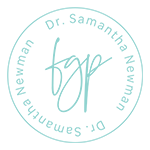Hormonal Hīkoi
Hormonal health is a journey, and understanding what has come before can offer valuable insights into where we are now and where we might be headed. Each person's hormonal journey is unique—everyone experiences different patterns, stages, and timelines. By recognizing the clues from past experiences, we can better prepare for the changes ahead and support our bodies through the process. This approach allows us to embrace the individuality of each journey while navigating the shifts that come with time.
In prepuberty, low estrogen levels result in small labia, thin vaginal walls, and reduced vaginal secretions, often causing vulvar itching and irritation that is mistakenly diagnosed as thrush. The lack of estrogen also makes young girls more prone to UTIs. Brain development continues rapidly, but without estrogen’s influence on neurotransmitters like serotonin and dopamine. Mental health rates remain equal between boys and girls (1:1), unlike later stages where hormonal shifts contribute to higher rates of mood disorders in females.
As menstrual cycles become more regular, estrogen levels peak and settle, often leading to heavier periods, unpredictable cycles, and more pronounced mood changes or PMS. High estrogen can also contribute to more painful periods, as the uterus contracts within a smaller pelvic anatomy. The shift in center of gravity, combined with progesterone-induced ligament laxity, may affect coordination and increase injury risk. Some girls also experience hormonal migraines, adding another layer to the physical and neurological impact of this phase.
Pregnancy involves hormonal changes that can cause physical and emotional shifts. For some, the increase in estrogen and progesterone leads to a sense of calm, but for others, it can trigger anxiety. These hormonal fluctuations can also affect inflammatory and autoimmune conditions, with about a third improving, a third worsening, and the rest staying the same. After birth, there’s a sharp drop in hormones, leading to "baby blues" for many, which usually resolve. However, postnatal depression (PND) can develop, marked by low mood, anger, lack of insight, and sleep disturbances.
Late perimenopause can feel like a return to the turbulence of puberty, with hormonal, physical, and psychological changes causing many women to feel "out of control" or "not myself." This stage often brings a mix of symptoms, like mood swings, body pain, and migraines, which may resemble experiences from adolescence. Looking back, subtle signs such as time off school or recurring migraines during puberty could provide clues that current well-being changes are also hormonal in nature. Women on HRT may need higher doses during this time to buffer the significant hormonal fluctuations, as estrogen overall is dropping, despite the big peaks and troughs in hormone levels.

During puberty, rising estrogen levels drive breast development, fat redistribution, and the maturation of the uterus and ovaries. The vaginal walls thicken, and natural lubrication increases, reducing irritation. Menstrual cycles begin, often irregular at first as the brain-ovary connection matures. Hormonal shifts influence brain function, increasing social awareness but also heightening sensitivity to stress. Mental health rates shift to a 2:1 ratio of girls to boys, highlighting the strong association between hormones and the increased risk of anxiety and depression in females.
During the reproductive years, menstrual cycles become more predictable, and many seek contraception—either for pregnancy prevention or to manage unwanted physical and psychological effects of hormonal fluctuations. Some find they simply feel better on contraception. As hormones stabilize, periods often become lighter and less painful, and migraines may improve. Many also develop greater cyclical awareness, noticing changes like increased vaginal discharge around ovulation, signaling peak fertility.
Late reproductive years and perimenopause can be highly variable, often overlapping with life stresses like peak career demands, raising young children, or caring for elderly parents. Around age 35, a drop in progesterone can subtly affect the menstrual cycle, leading to symptoms like insomnia for some. Mood changes often appear before physical symptoms, and those with PMS or PMDD are particularly vulnerable during this stage, as hormonal shifts become more noticeable, similar to the changes seen during puberty. Previous contraceptive methods that helped with mood may no longer be effective as hormonal changes make the body respond differently.
During menopause and postmenopause, symptoms like hot flushes and pain can worsen, and the risk of chronic diseases may increase. However, as postmenopause progresses, women on HRT may be able to lower their doses due to reduced hormone needs, though HRT can be continued long-term if needed. Understanding changing physiology is key to supporting body composition—lifting heavy weights and increasing protein intake helps stimulate muscle growth, as estrogen plays a crucial role in muscle maintenance. Genitourinary syndrome of menopause affects most women as they progress; using topical estrogen cream for the vulva and vagina can help manage symptoms and reduce UTIs by 50%.
Hormonal health is a journey, and each of us experiences it in our own unique way. Along the way, the clues from our past—whether it’s how we’ve responded to treatments, changes in mood, or symptoms over time—can help guide us to what’s best for our body.✨
At every stage, from puberty to perimenopause, and beyond, we’re always evolving. By reflecting on past experiences, we can better understand where we are now, and how to move forward with intention and care.
Join me on this Hikoi of self-discovery, and let’s find the right path to support your hormonal health. 🛤️
Stay tuned for the video where I’ll share more insights about how we can shape your hormonal journey together. 💫

